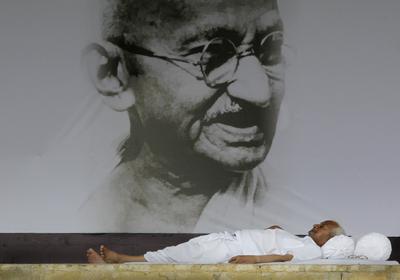Not surprisingly perhaps, the current policy paralysis appears to be the outcome of incentives created by strengthened client-patron relationships permeating the policymaking process across the region.
Institutions, historical and cultural settings, and the stage of development matter in understanding the political economy of policymaking. Across South Asia, there are differences in the way institutions and governance structures have evolved. India and Sri Lanka have relatively mature and established democratic institutions and systems. Bangladesh and Pakistan, on the other hand, have been subject to frequent authoritarian military rule. Yet the commonalities across the region are far greater, emanating from a shared colonial history that saw each country inheriting very similar political and administrative structures.
A need to repudiate links with the past saw South Asian governments strive for national self-sufficiency by enthusiastically adopting inward-looking economic policies. Despite rising evidence that such policies were failing to deliver the desired development goals, the democratic forms of government practised in the region were slow to react, owing largely to the need to build consensus. A hesitant reform process that began in the late 1970s and progressed through the 1980s only became a more comprehensive effort from the early 1990s when India began a major reform initiative.
Many of the key elements that drive reform in developing countries — such as the presence of domestic economic difficulties, pressure from international financial institutions, a break from groups with vested interests and strong political leadership — were present in each of the major reform episodes. Notwithstanding the presence of international financial institutions, national policymakers played a leading role, as evident from the sequencing, pacing and design of reforms.
Bangladesh tackled its agricultural inputs market first, before moving on to more contentious import tariff reforms. Where difficult reforms were implemented — such as withdrawal of food subsidies — compensatory policies such as public works programs were built in, even when they had an obvious fiscal cost. Yet despite the inroads made, South Asia’s reform efforts have drawn considerable criticism for their narrowness of scope.
Nonetheless, there is no reversal of reforms. More importantly, since the mid-1990s, there has been a convergence on economic policy across mainstream political parties in the region. It is thus even more paradoxical that South Asia has been gripped by policy paralysis over the last decade.
A failure to strengthen institutions and governance structures lies at the heart of this paralysis. Indeed, the region’s record in most global governance indicators is very poor, with India doing marginally better than its neighbours. The typical rent-seeking activities under a licence regime have been replaced by stronger patron-client relationships between politicians and other key actors in the policymaking process. The concentration of state power has intensified, with political parties dominated by a handful of families, stifling democratic practice within parties, and centralising decision-making.
In turn, South Asia’s bureaucracy is more politicised and powerful, performing both administrative and political functions as politicians rely on a few ‘hand-picked’ technocrats to formulate and implement policy. The dual role and discretionary powers they enjoy mean a greater blurring of transparency and accountability in policy decisions, and a distancing of policymakers and elected politicians from their constituencies.
While democracy has spread in South Asia, political party rivalry and confrontational politics is more pronounced, particularly in countries such as Bangladesh and Pakistan. The growth of small parties representing narrow interests is giving rise to minority coalition governments in India and Sri Lanka. They not only hamper reform efforts, but strengthen patron-client relationships. Coalition arrangements require that posts and privileges are dispensed freely, and polarisation in party politics encourages the practice of ‘competitive populism’ to the detriment of sound policymaking.
In the absence of credible channels through which the public or interest groups can influence policymaking, the region is increasingly seeing judicial intervention being sought as a compensatory mechanism. In Sri Lanka and Pakistan, interest groups have successfully petitioned the Supreme Court to halt or reverse privatisation deals. India has witnessed judicial intervention in corruption scams, as well as petitioners seeking court intervention in pushing forward civil service reforms.
But judicial intervention is not an appropriate compensatory channel to fix weaknesses in institutionalising a reform process. More often than not, governments view judicial intervention as an overreaching of court powers whereby any ensuing tussle holds the risk of compromising judicial independence. Instead of seeking judicial intervention, South Asia should focus on reinvigorating its politico-institutional structures to institute norms and rules that will restrain the drift towards arbitrary action and corruption.
Dushni Weerakoon is the Deputy Director and Head of Macroeconomic Policy Research at the Institute of Policy Studies (IPS), Sri Lanka.
This article appeared in the most recent edition of the East Asia Forum Quarterly, ‘Asia’s global impact‘.

